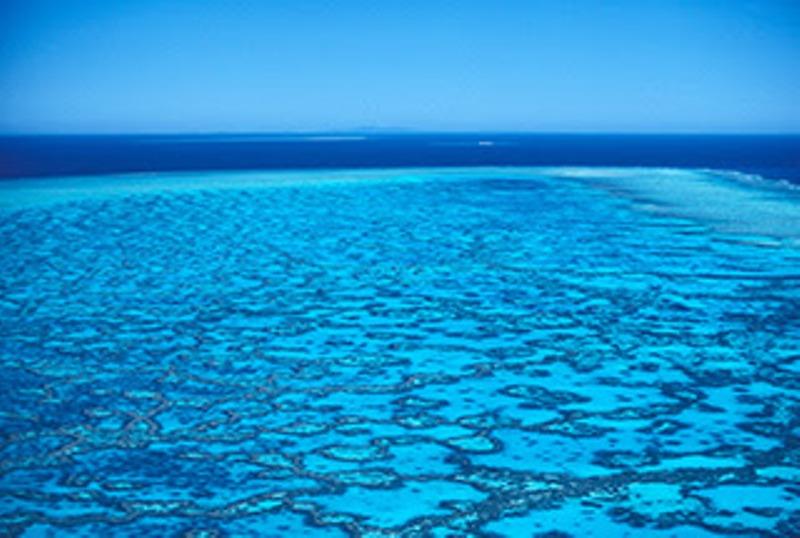
Statement: Great Barrier Reef Marine Park - Queensland Shark Control Program
by GBRMPA 19 Oct 2019 01:24 UTC

Wistari Reef © GBRMPA
The following statement is from the Great Barrier Reef Marine Park Authority about the Queensland Government's Shark Control Program:
On 27 September 2019, the Great Barrier Reef Marine Park Authority (the Authority) reissued a permit for the Queensland Shark Control to operate in the Great Barrier Reef Marine Park that reflects the conditions imposed by the Administrative Appeals Tribunal decision of 2 April 2019.
The conditions of the Tribunal came into immediate effect on the 18 September 2019, the date that the Federal Court dismissed the appeal of the Queensland Government.
The Authority administers a system of permissions to regulate use of the Great Barrier Reef Marine Park in ways consistent with ecosystem-based management and the principles of ecologically sustainable use.
The Authority considers, alongside ecological sustainability, that public safety is a priority and, though interactions between humans and sharks are rare, shark attacks can be extremely traumatic and pose a risk to human life.
The Authority understands management of sharks in the marine environment is a sensitive issue.
In the Great Barrier Reef Marine Park the Queensland Department of Agriculture and Fisheries operates the Shark Control Program with permission of the Authority.
The Queensland Shark Control Program operates across 85 beaches throughout the State of Queensland, including 27 beaches in Cairns, Townsville-Magnetic Island, Mackay, Capricorn Coast and Gladstone.
More than two-thirds of the program operates at beaches outside the Great Barrier Reef Marine Park.
Queensland can continue to undertake its lethal shark control program at beaches outside of the Great Barrier Reef Marine Park where the reissued permit does not apply.
These beaches include:
- All southern Shark Control Program regions - Woongarra Coast, Rainbow Beach, Sunshine Coast, North Stradbroke and Gold Coast. Queensland has approximately 180 drumlines at 38 beaches and 25 nets at 20 beaches
- Cairns Shark Control Region - Trinity Beach, Yorkeys Knob, Holloway Beach
- Townsville Shark Control Region - The Strand, Horseshoe Bay
- Mackay Shark Control Region - Lamberts, South Lamberts Beach, Harbour Beach
- Capricorn Coast Shark Control Region - Lammermoor Beach (in the Port exclusion zone).
- Tannum Sands (in the Port exclusion zone)
- In the Commonwealth Great Barrier Reef Marine Park, the Shark Control Program covers approximately 24 kilometres, or 1 per cent of the Marine Park's coastline.
The Authority has been in close contact with the Queensland Department of Agriculture and Fisheries about the operation of the Shark Control Program in the Marine Park.
The Authority has offered to assist the Queensland Department of Agriculture and Fisheries through discussion about options that protect both human life and the marine environment, consistent with best practice management of the World Heritage Area.
Release of the new report on alternative non-lethal approaches
The Great Barrier Reef Marine Park Authority welcomes the release of the review of alternative non-lethal approaches for shark control prepared by Cardno for the Queensland Government.
The Cardno review clearly demonstrates there are a number of potential alternatives that would enable the Queensland Department of Agriculture and Fisheries to meet their permit conditions and ensure public safety.
Options for the future Shark Control Program
Options trialled and implemented in other parts of Australia for managing interactions between people and sharks include increasing surveillance using technologies such as drones, the use of SMART drumlines, swimming enclosures and tags that could provide warnings to swimmers and life guards.
SMART drumlines, which provide real-time alerts to signal a shark has been captured, could be part of a broader control program including, for example, localised barrier nets, drone technology and science and research into shark behaviour and mitigation.
The Cardno review shows that low ocean swell conditions in the north are suitable for using SMART drumlines, barrier nets and different deterrent systems.
The Cardno review identifies some issues that need consideration. A trial - as required by the reissued permit - would provide an evidenced-based assessment of the utility of SMART drumlines in the Great Barrier Reef Marine Park and would assist with addressing some of the challenges.
Approaches trialled and implemented in other parts of Australia for managing interactions between people and sharks could be considered by the Queensland Government to assist compliance. It could also provide guidance for staff and contractor health and safety protocols.
Permit background
The conditions of the reissued permit do not require the complete replacement of the 131 current drumlines with SMART drumlines immediately.
A key condition of the permit remains the establishment of a scientific working group with relevant experts to advise on:
- A research program that includes marine animal tagging and tracking to include understanding of the post-release survivorship and movement of bycatch species
- Trialling new technologies — sonar, equipment configurations, types and baits — aimed at improving target shark catch, reducing non-target catch and improving swimmer safety.
None of the conditions of the re-issued permit negate Queensland's obligations under health and safety laws.
Towing sharks over large distances or into areas like the Whitsundays, Magnetic Island and the Keppels is not required by the permit conditions.
The permit requires only that tagged shark species (tiger, bull and white sharks) are, where possible, relocated offshore.
The re-issued permit requires the lethal take of shark species can only be considered on animal welfare grounds, or when a shark can not be safely removed alive.